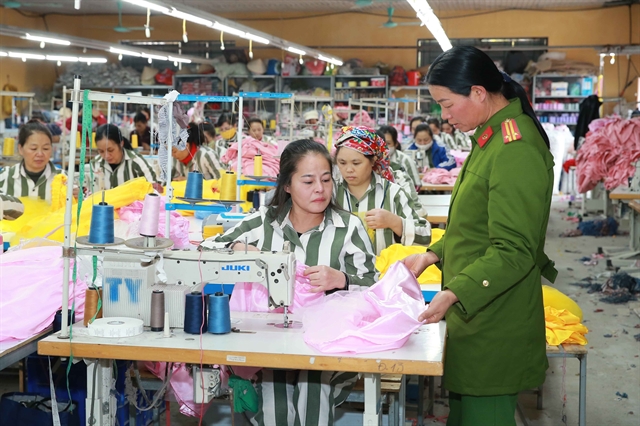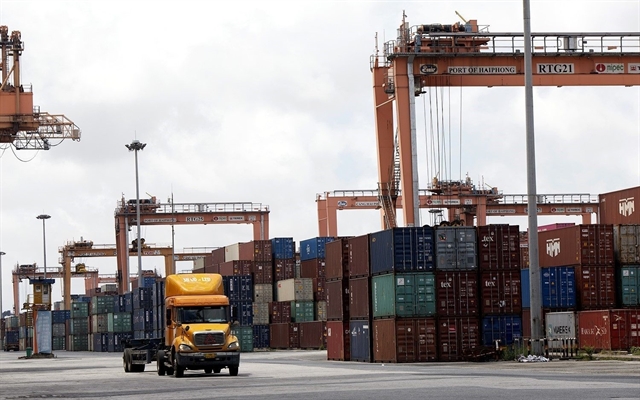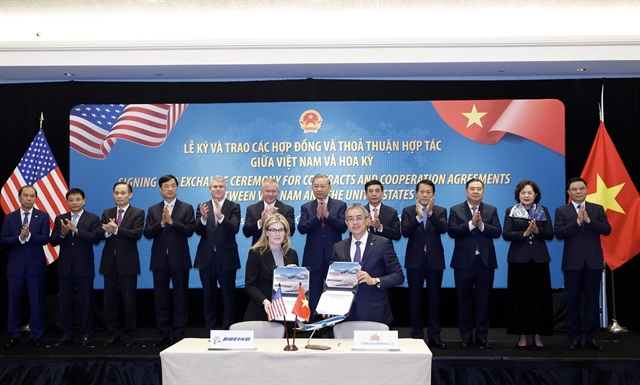 Society
Society


|
| Prisoners learn sewing at Quyết Tiến Prison in the northern province of Tuyên Quang. — VNA/VNS Photo Doãn Tấn |
HÀ NỘI — From the middle of June this year, offenders who complete their jail sentences or are released under presidential amnesty can access loans offered by the National Employment Fund and apply for jobs in public projects.
This is part of decree No49/2020/NĐ-CP, a newly-approved Government decree on re-integration for people who complete their jail sentences.
Under the decree, after finishing their jail sentences or being freed under presidential amnesty decisions, people can borrow job-training loans from credit packages designated for students.
They also can get loans from the National Employment Fund and get priority in applying for job positions in public projects or operations including those related to the protection, management and use of soil, water and forest resources; responses to natural disasters and climate change; those related to preservation and development of culture and tourism or projects/operations related to the construction, renovation and maintenance of public works like traffic systems, schools, nurseries, medical stations and markets.
Young people and guest workers are usual beneficiaries of the National Employment Fund.
According to the decree on offenders’ re-integration, the Government calls on organisations, agencies and individuals to offer consultation, job training and job creation for those who return to the community after completing prison sentences.
Organisations and individuals are also encouraged to oversee and help the returnees with housing and accessing tax exemptions and reductions in line with current regulations.
The decree also mentions support from prisons’ Re-integration Fund and specific funding to each prisoner would be decided by the prison supervisors depending on the prisoners’ conditions.
About two months before the prisoners are released, they would be offered psychological and legal consultation so they can deal with issues like marriage, family, health, HIV/AIDS prevention and control, public discrimination or self-discrimination.
They are also told how to solve possible problems arising during their community re-integration.
The prisoners who are set to be free would be assisted to register their residency, to get personal identification, apply for loans/business licences or get labour contracts.
Three months before the prisoners are released, the prison managers have to make plans and co-operate with functional agencies in offering them job training courses and job certifications.
Prisoners under 18 years old are given priority to attend job training classes so they are expected to re-integrate into the community.
The Ministry of Public Security and Ministry of Labour, Invalids and Social Affairs are responsible for organising such job-training courses, granting job certifications and even connecting the prisoners with employers.
The new decree would replace the current one – Decree No80/2011/NĐ-CP dated September 2011, on measures to ensure re-integration for persons having completely served prison sentences. — VNS




